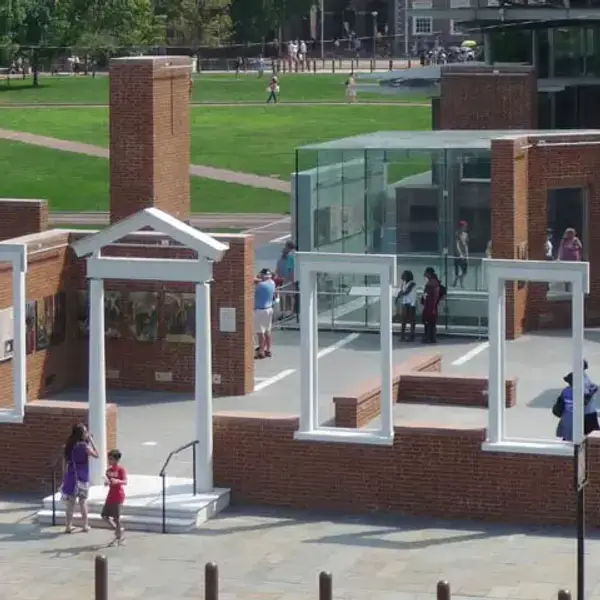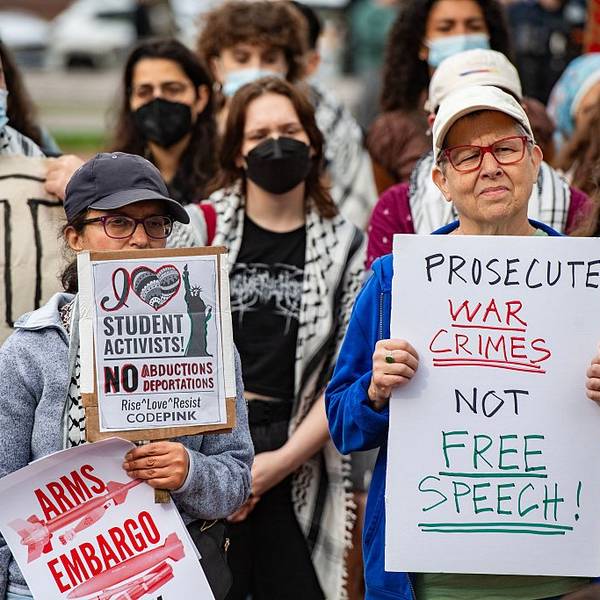Is there anything more that the administration can do to ignore the spirit of the U.S. Constitution before President Bush leaves office?
The New York Times has revealed that a 2007 memorandum by the Justice Department's Office of Legal Counsel claims that even federal programs subject to nondiscrimination laws can hand out taxpayer money to groups that discriminate in hiring staffers. The memo says the administration can bypass laws that bar giving taxpayer money to religious groups that hire only staff members who share their faith.
It specifically applies to a $1.5 million grant to World Vision, which is headquartered in Federal Way, for salaries for staff members on a program that helps at-risk youths avoid joining gangs.
The organization limits its hires to Christians, but the DOJ memo said that's not a problem because exceptions to the nondiscrimination rule are permissible when obeying the law would impose a "substantial burden" on people's ability to freely follow their religion.
Requiring World Vision to hire nonChristians as a condition of the grant would create such a burden, according to the DOJ memo.
It seems no president has done so much to break down the wall of separation between church and state than Bush has.
A couple of weeks after he took office in 2001, Bush dropped into the White House press room to hold an impromptu news conference -- his first as president. Every question but one was focused on his campaign's proposed tax cut. But I asked the president why he did not respect the historic wall of separation of church and state.
"I do," he replied.
"No, sir," I said. "If you did, you would not create a religious office in the White House." I was later called by Ari Fleischer, the White House press secretary, who asked me why I had "blindsided" the president with my church-state question. I told him I thought it was a "legitimate" question for the new president.
I grant you that there have been other presidents who have clouded the question, such as President Nixon, who held prayer gatherings on Sundays at the White House with invited ministers.
But none of this touched on the intrinsic question of separation of church and state.
The Office of Faith-Based and Community Initiatives was established by Bush in the White House, paving the way for church groups to win grants for social causes such as anti-drug programs and shelters for the homeless.
The president asked Congress to make it "legal" for religious groups to be given taxpayer money even when they discriminate against hiring people of other faiths. When Congress balked, Bush issued an executive order making the changes he wanted on his own.
Religion and politics seem to intersect frequently these days.
In remarks worthy of the Founding Fathers, retired Gen. Colin Power broke with his own party to support the presidential candidacy of Barack Obama -- and addressed a taunt against the Democratic candidate that he is a Muslim. Obama is a Christian.
But, Powell asked rhetorically on NBC TV's "Meet the Press" last Sunday, what if Obama were Muslim.
"He's always been a Christian," Powell said. "But the really right answer is, what if he is? Is there something wrong with being a Muslim in this country?
"The answer's no, that's not America," Powell said. "Is there something wrong with some 7-year-old Muslim-American kid believing that he or she could be president?"
Powell went on to tell the story of a young American of Arab heritage who joined the Army as soon as he came of age and was killed in Iraq.
This country was founded by people who sought freedom to practice their own religion. To each his own. Democracy is a better alternative to theocracy and we know that tolerance of race and creed is the essence of what America is all about.



